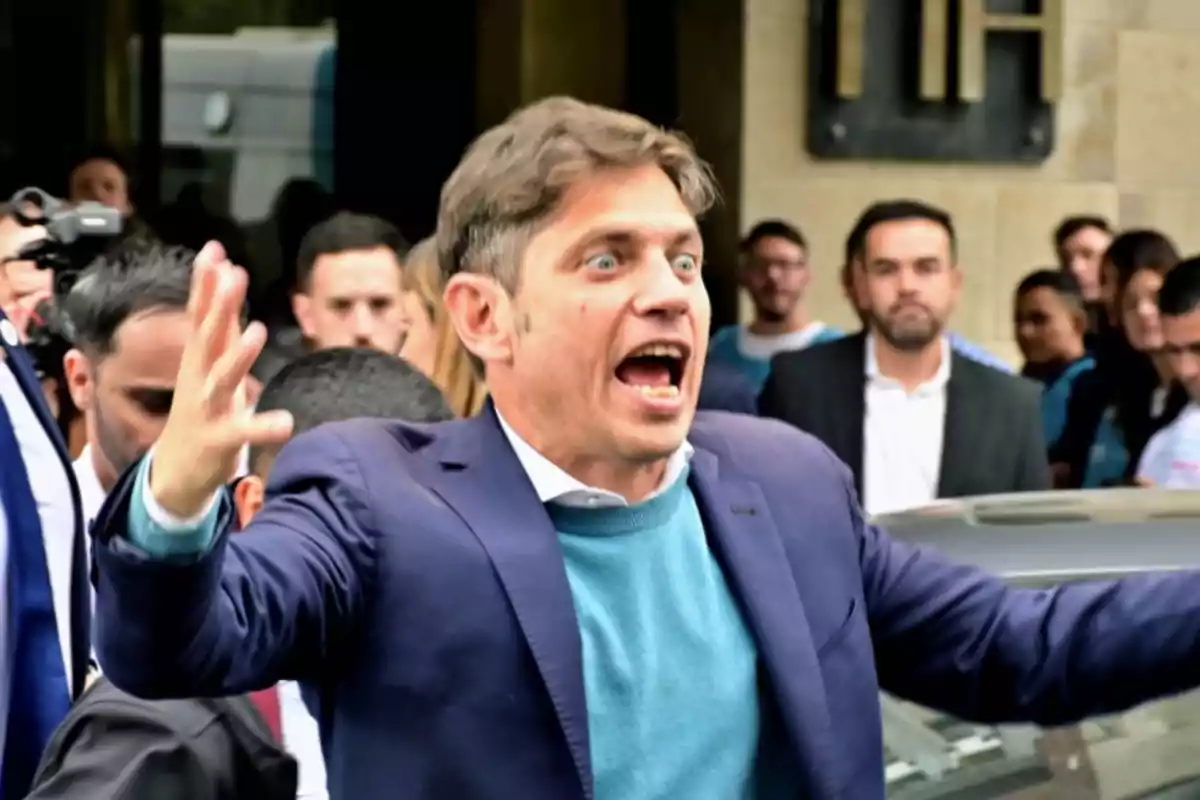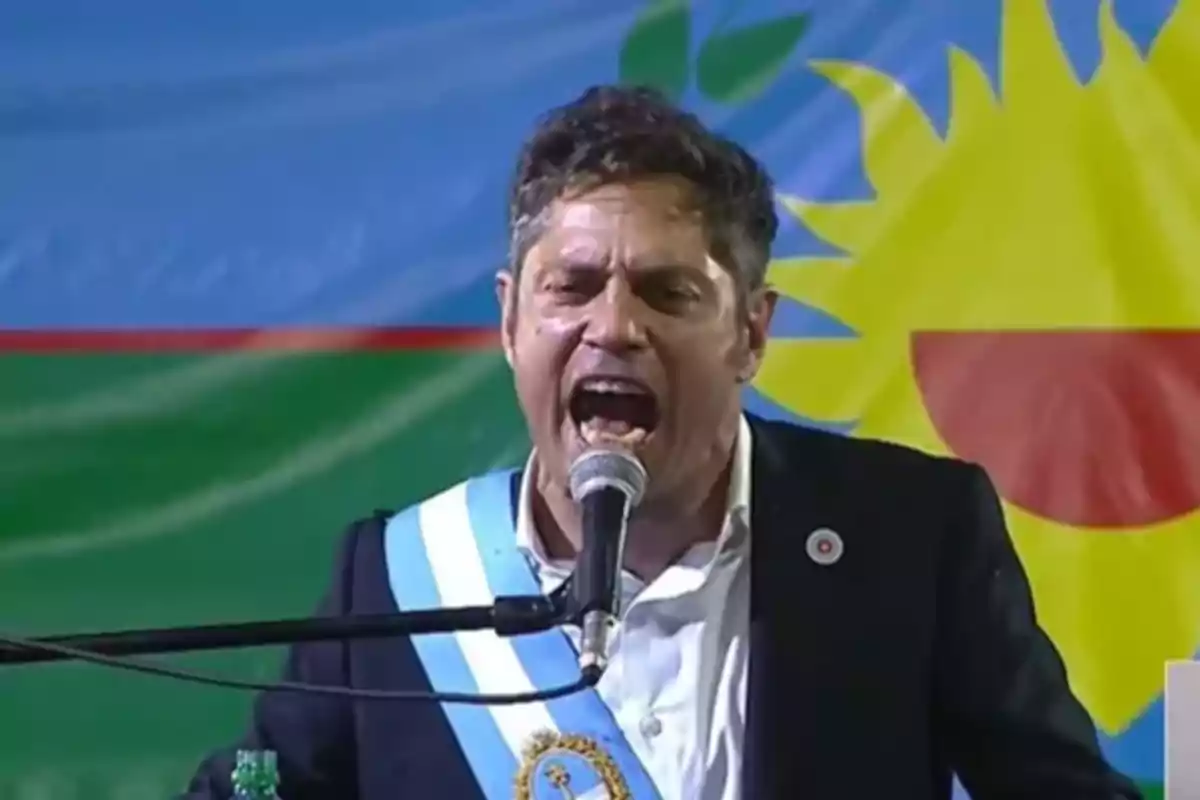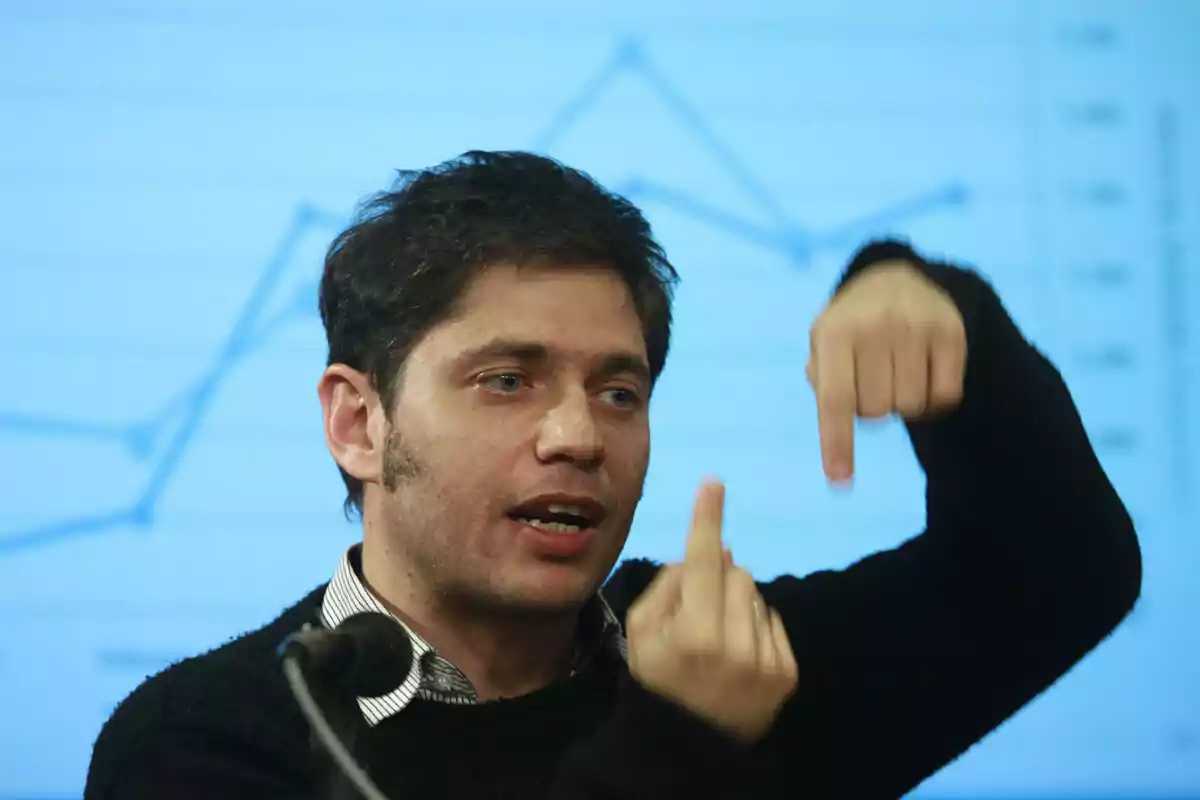
Kicillof denied urgent assistance to a young person with a terminal illness in Buenos Aires
The case of a Mar del Plata resident with multiple medical conditions exposes the negligence of Axel Kicillof's government
In the province of Buenos Aires, the administration of communist Axel Kicillof faces clear contradictions in its "social sensitivity" discourse, meanwhile its response to a case of extreme social and health vulnerability.
Héctor Santiago Gabriel Luna Torres, a young man from Mar del Plata with a terminal medical condition and an extensive history of surgical interventions, has been waiting since July for financial assistance that could take up to three months to materialize.
Santiago, according to information provided by his family, suffers from myelo-hydrocephalus with valvular dysfunction, refractory epilepsy, ischemic stroke with hearing loss and cataracts, aplastic medullary anemia, scoliosis, spina bifida, and chronic-degenerative respiratory failure with obstructive apnea.

He also underwent a kidney transplant, in which his mother, Miriam Julieta Torres,was the donor. He has undergone73 surgeries and is permanently dependent on medication, medical equipment, special nutrition, and constant care.
The family's economic situation worsens the condition. According to a sworn statement submitted on July 22, 2025, monthly income doesn't exceed 90,000 pesos, which forces them to prioritize basic expenses such as food and essential items. Despite this, medical and logistical costs are not fully covered, including medications, transportation to health centers, and essential supplies.
On July 10, attorney Lucas Bianco, who represents the family, submitted a formal request to the Buenos Aires governor for urgent assistance. The official response was the promise of a one-time subsidy of 250,000 pesos, with a period of up to three months for its implementation. The attorney warned that "if the boy dies, they will be responsible for abandonment of person".
Meanwhile, the family has had to turn to help from acquaintances and social media campaignsto cover immediate expenses. In recent days, 60,000 pesos were raised to purchase a medication valued at just over 40,000. The rest of the resources are allocated to transportation, medical supplies, and food.

The case defines what the priorities and response capacity of theprovincial government truly are. Although in other circumstances million-dollar allocations have been made quickly, here the assistance is limited to a single, deferred amount. For Bianco, this constitutes a "violation of obligations" by the State, by not guaranteeing immediate coverage of essential needs.
In a context in which the Buenos Aires administration keeps a discourse of "presence and social sensitivity", this episode raises questions about the real effectiveness of public policies in critical cases and about the criteria for resource allocation in situations of vital risk.
More posts: